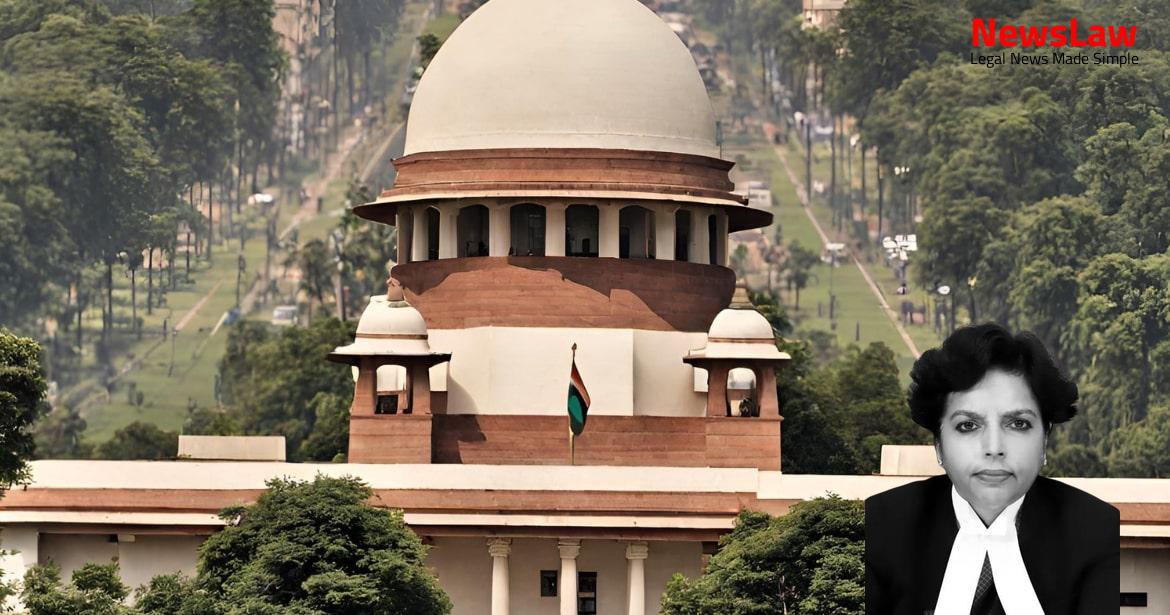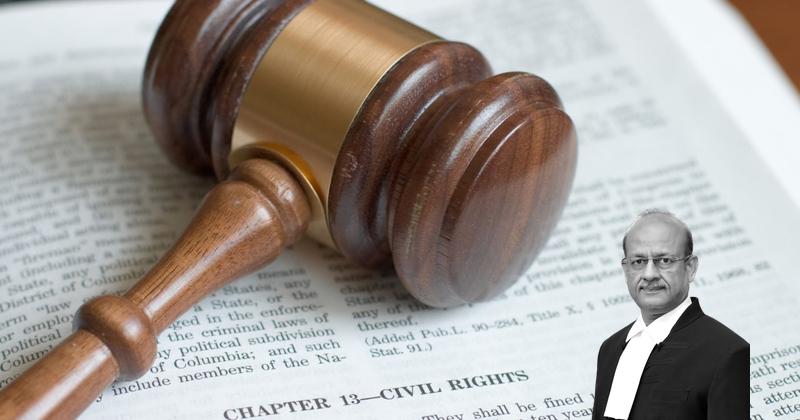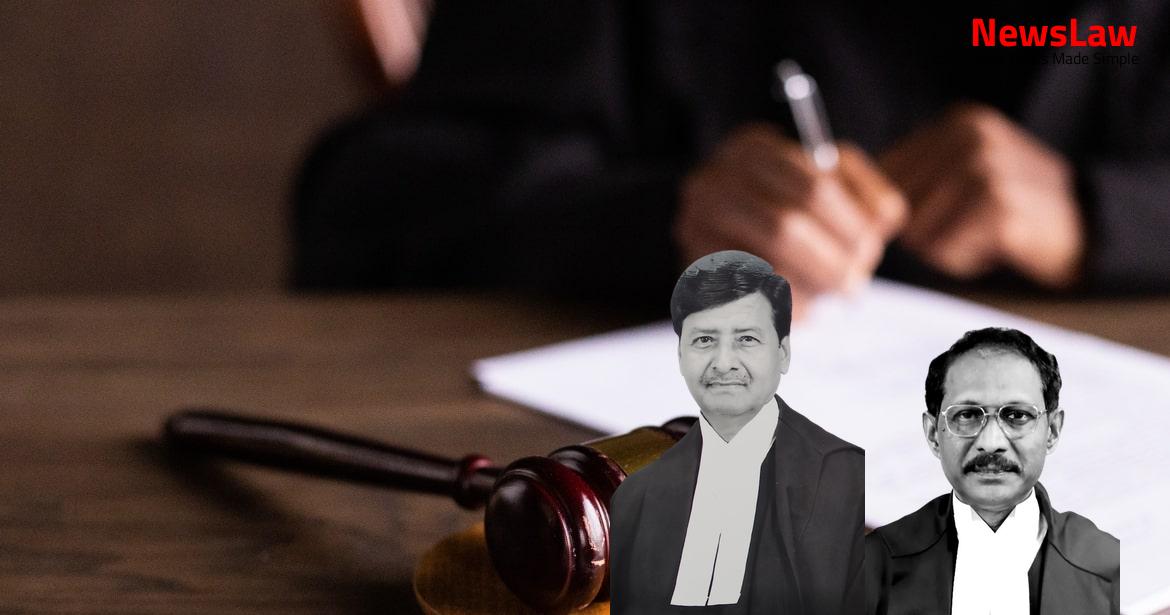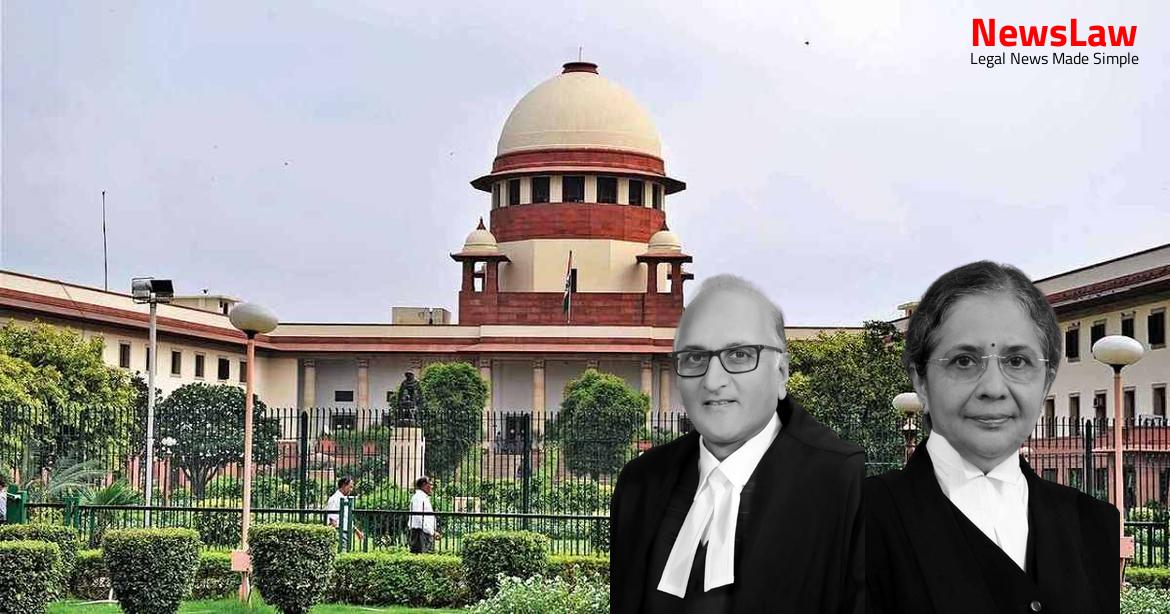The present case has a chequered history with multiple rounds of litigations spewed between the appellant and the respondents. On 7 July, 2014, the appellant was selected and empanelled for appointment as a Member of the Income Tax Appellate Tribunal by the Selection Committee headed by a sitting Judge of the Supreme Court nominated by the then Chief Justice of India. The said judgment passed by the Tribunal was assailed by the respondents in a writ petition before the High Court, which came to be dismissed on 30 May, 2017, with further directions issued to make the entire process of reconsideration of the appellant’s candidature by the Selection Committee, timebound. Initially, an interim order was passed by the Tribunal observing that the show cause notice issued by the respondents would not impede the appellant’s consideration for appointment to the post of Member, ITAT. Admittedly, no interim order was passed by the High Court staying the operation of the judgment dated 06 March, 2019, passed by the Tribunal. Aggrieved by the non-compliance of the order dated 30 May, 2017, passed by the High Court in his favour, the appellant filed a contempt petition before the High Court. It may be noted here that the mechanism in place within the department for arriving at a conclusion as to who amongst the Group-A Officers in the CBDT deserve to be prematurely retired, starts with an assessment to be conducted by the Internal Committee that identifies and recommends the names of the officers and places it before the Review Committee. The appellant challenged the final order of compulsory retirement issued against the appellant on 27 September, 2019 and the subsequent order dated 2 January, 2020, passed by the Representation Committee declining to interfere in the order of compulsory retirement, before the Tribunal.
Firstly, on the ground of serious prejudice caused to him due to the active participation of the Additional Director General (Vigilance) as a Member of the Internal Committee when he had a bias against the appellant and the participation of the then Chairman of the CBDT in the meeting of the Review Committee, convened to examine the recommendations of the Internal Committee for pre- maturely retiring him, when he ought to have recused himself knowing that he was facing three contempt notices, one issued by the High Court on 13 August, 2019 [Contempt Petition No.2681/2017] and two notices issued by the Tribunal [CCP No.15/2019 and CCP No.25/2019] for failing to forward the appellant’s vigilance clearance required for processing his case for appointment as Member, ITAT, to the Selection Committee. This selection of the appellant was reiterated by a subsequently constituted Selection Committee in the year 2018, but did not reach fruition due to persistent obstructions created by the respondents, who withheld his vigilance clearance without a valid reason and subsequently placed his name in the “Agreed List”, followed by initiation of a disciplinary enquiry against him on baseless charges which was not taken to its logical conclusion, as he was prematurely retired in September, 2019. Sanjay Jain, learned Additional Solicitor General who appeared for the respondents – Union of India urged that the impugned judgment is a well-reasoned one and does not deserve interference; that the order of compulsory retirement was passed in the case of the appellant after duly considering his entire service record; that the material relied upon by the respondents for passing an order under FR 56(j), was carefully considered by the Tribunal before dismissing the Original Application filed by the appellant, as meritless and that the allegations of institutional malice and bias levelled by the appellant are ill-founded.
Citing several decisions of this Court on the limited scope of interference in an order of compulsory retirement, it was submitted on behalf of the respondents – Union of India that courts should ordinarily refrain from returning findings on merits of the allegations against the concerned officer. The provision of Fundamental Rule 56(j) reads as under: “FR 56(j) :- The Appropriate Authority shall, if it is of the opinion that it is in the public interest so to do, have the absolute right to retire any Government servant by giving him notice of not less than three months in writing or three months’ pay and allowances in lieu of such notice :- (i) If he is, in Group ‘A’ or Group ‘B’ service or post in a substantive, quasi- permanent or temporary capacity and had entered Government service before attaining the age of 35 years, after he has attained the age of 50 years; (ii) In any other case after he has attained the age of 55 years. The object of compulsory retirement is to weed out the deed wood in order to maintain efficiency and initiative in the service and also to dispense with the services of those whose integrity is doubtful so as to preserve purity in the administration. Generally speaking, Service Rules provide for compulsory retirement of a government servant on his completing certain number of years of service or attaining the prescribed age. The above discussion of case-law makes it clear that if the order of compulsory retirement casts a stigma on the Government servant in the sense that it contains a statement casting aspersion on his conduct or character, then the court will treat that order as an order of punishment, attracting provisions of Article 311(2) of the Constitution. So also, if the statement in the order refers only to the assessment of his work and does not at the same time cast an aspersion on the conduct or character of the Government servant, then it will not be proper to hold that the order of compulsory retirement is in reality an order of punishment.
This conclusion follows inevitably from the particular circumstances, among others, that the appellant was found worthy of being permitted to cross the second efficiency bar only a few months before. But on the material before us we are unable to reconcile the apparent contradiction that although for the purpose of crossing the second efficiency bar the appellant was considered to have worked with distinct ability and with integrity beyond question yet within a few months thereafter he was found so unfit as to deserve compulsory retirement. Union of India, emphasizing the fact that exercise of powers under Fundamental Rule 56(j) must be bona fide and promote public interest, this Court observed that : – “25. The legal position that now emerges is that even though the order of compulsory retirement is couched in innocuous language without making any imputations against the government servant who is directed to be compulsorily retired from service, the court, if challenged, in appropriate cases can lift veil to find out whether the order is based on any misconduct of the government servant concerned or the order has been made bona fide and not with any oblique or extraneous purposes. But in view of the clear and specific averments made by the respondent-State that the impugned order has been made to compulsorily retire the appellant from service under the aforesaid rule as the appellant was found to have committed grave financial irregularities leading to financial loss to the State, the impugned order cannot but be said to have been made by way of punishment.
But the Government, before taking the decision to retire a government employee compulsorily from service, has to consider the entire record of the government servant including the latest reports.” In State of Gujarat and Another vs Suryakant Chunilal Shah, a case where the State Government had challenged the judgment of the Division Bench of the High Court of Gujarat that had held that the order of compulsory retirement passed against the respondent therein was bad, as there were no adverse entries in his Confidential Report and his integrity was not doubtful at any stage, this Court held thus : – “28. The law relating to compulsory retirement has now crystallized into a definite principle, which could be broadly summarized thus: (i) Whenever the services of a public servant are no longer useful to the general administration, the officer can be compulsorily retired for the sake of public interest. (iv) Any adverse entries made in the confidential record shall be taken note of and be given due weightage in passing such order. Union of India, confronted with the question as to whether action taken under Rule 135 of the Research and Analysis Wing (Recruitment Cadre and Service) Rules, 1975 is in the nature of “a penalty or a dismissal clothed as compulsory retirement” so as to attract Article 311 of the Constitution of India, this Court has held that “ the real test for this examination is to see whether the order of compulsory retirement is occasioned by the concern of unsuitability or as a punishment for misconduct”.
An order of retire- ment differs both from an order of dismissal and an order of re- moval, in that it is not a form of punishment prescribed by the rules, and involves no penal consequences, inasmuch as the person retired is entitled to pension proportionate to the period of service standing to his credit.” We may now proceed to examine the facts of the case in hand in the light of the case laws discussed above in order to find out as to whether the order of compulsory retirement passed by the respondents in respect of the appellant was based on valid material and was in public interest. Coming next to the stand taken by the respondents that several complaints were received against the appellant that had cast a cloud on his integrity, it is noteworthy that the respondents have referred to nine complaints against the appellant, stated to be pending in the Vigilance Directorate that have been pithily summarized by the Tribunal in a tabulated format in para 30 of its judgment dated 6 March, 2019. Bajaj, CIT E, Lucknow Closed dated 03.05.2018 3
Sh. Dharam
Veer Kapil IFS Retd Dated 17.10.2017
ID issued dated 13.11.17.
Bajaj, CIT (Exemption), Lucknow Shri Ashok Verma, Lucknow ID issued dated 08/04/16.
Dated 29.06.16 ID issued dated 03.08.16
Reminder dated 09.09.16 letter received back undelivered till date. Bajaj Letter dated 28.01.15 to CIT, Ajmer for providing information on case in court matter. CCIT, Jaipur for status report dated 20.01.16 & reminder dated 28.09.16 sent. Bajaj CIT (E), Lucknow Blank/ Closed dated 03.05.18 No details mentioned 3 Sh. Dharam Veer Kapil IFS Retd Dated 17.10.2017 ID issued dt. Bajaj CIT (Exemption), Lucknow Shri Ashok Verma, Lucknow ID issued dt. 05.16 ID neither responded nor received back undelivered till dated Closed dt./19.7.16. Dated 29.06.16 ID issued dated 03.08.16 Reminder dt. Fictitious/Pseudo anonymous complaint still connected files taken during inspection on 29.11.2017 8 Sh. ID neither received back nor Fictitious/Pseudo anonymous complaint still connected files taken during inspection on 29.11.2017.
The appellant has also stated in the remarks column that no explanation had ever been called for from him on the said complaint, status whereof is shown as “Under examination”. 3 and 4, the respondents have stated that they are “Under examination”. In the remarks column, the respondents have stated that necessary information in respect of the said court proceedings between the parties was sought by the department. Insofar as the matrimonial dispute of the appellant is concerned, the material placed on record reveals that the same had attained quietus by virtue of a settlement arrived at between him and his estranged wife, vide Settlement Agreement dated 18 June, 2016 recorded by the learned Mediator appointed by the Delhi High Court Mediation and Conciliation Centre. In the above backdrop, there appears no justification for the respondents to have raised the spectre of a series of complaints received against the appellant during the course of his service that had weighed against him for compulsorily retiring him, more so, when these complaints were to the knowledge of the respondents and yet, his service record remained unblemished throughout. However, sometime later, the respondents withheld the vigilance clearance given earlier on the ground that there was an adverse IB Report against the appellant. Undeterred by the aforesaid judicial orders, the respondents continued to withhold the vigilance clearance of the appellant, this time claiming that there were some adverse findings against him in an Inspection Report dated 20 April, 2018 stated to have been prepared on the basis of an inspection of the office of the appellant conducted on 29 and 30 November, 2017 which was done within a few days of this Court upholding the order dated 10 February, 2017 passed by the Tribunal, calling upon the respondents to place his adverse IB report before the Selection Committee, for it to take a view in the matter. Regardless of the above directions, the respondents not only denied vigilance clearance to the appellant on 20 April, 2018 they went a step ahead and proceeded to place his name in the “Agreed List” i.e., the list of suspected officers. In its judgment, the Tribunal relied on the order dated 15 May 2018, passed by the High Court in W.P. Noting that the Memo dated 30 January 2018 issued by the respondents calling for an explanation from the appellant was premised on the very same inspection conducted by the Department, the Tribunal reiterated the string of findings returned by it in favour of the appellant in its earlier common judgment dated 6 March 2019 [passed in O.A. Having regard to the fact that the respondents did not take the disciplinary proceedings initiated against the appellant to its logical conclusion and instead issued an order compulsorily retiring him, this Court does not deem it expedient to delve into the allegations levelled in the said Charge Memorandum; all the same, we have cursorily gone through the Charge Memorandum that mentions three charges – one alleging that the appellant failed to seek permission from the department to purchase a flat in relation to the matrimonial dispute between him and his estranged wife and the second one is in respect of the allegation of bigamy levelled against him by his estranged wife.
Case Title: CAPTAIN PRAMOD KUMAR BAJAJ Vs. UNION OF INDIA (2023 INSC 204)
Case Number: C.A. No.-006161-006161 / 2022



